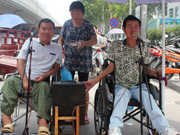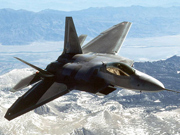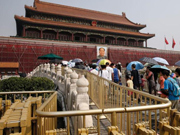SANAA, Aug. 29 -- Hundreds of thousands of pro- and anti-government Yemenis staged demonstrations across the country on Friday, as fresh crisis triggered by steep fuel price hike escalates in the impoverished country.
Supporters of the Shiite Houthi rebels rallied in the capital Sanaa and more than ten provinces in Yemen, demanding the government to resume fuel subsidies and resignation of the cabinet.
The protesters accused the transition government of corruption and demanded immediate resume of fuel subsidies as the government almost doubled the fuel prices at the end of last month.
Ibrahim al-Abdi who supports the Houthi group said:"We will continue the revolutionary protest until we achieved our three demands which are the dismissal of the government, resuming the fuel subsidy and implementation of the outcomes of the national reconciliation dialogue."
The Shiite rebels also urged the formation of a new technocrat government led by an independent prime minister and a broad partnership in policy-making process.
The Yemenis have suffered mass blackout and shortage of daily necessities since political upheaval hit the country in 2011. A steep increase in fuel prices deepened the crisis as some observers said the government has transferred the sustainable financial deficit from itself to the Yemeni families' pockets.
The crisis escalated as negotiations between the government and Houthi group collapsed last week.
Government officials told Xinhua that Yemeni President Abd- Rabbu Mansour Hadi on Friday dispatched another team to resume talks with the Houthi leader in Saada province, the rebels' stronghold in northern Yemen.
Hadi has offered during the last week's talks to include Houthi members in the future cabinet and allow them in broad political partnership. The officials said both sides are willing to end the current crisis.
The protesters has set up sit-in tents around several ministries, and near a military airforce base and Sanaa International Airport in Sanaa. Meanwhile, the Houthi group also mobilized tens of thousands of armed fighters at entrances of Sanaa.
Hadi said he would defend the capital and secure the five million residents as he had ordered the army and security forces on high alert, according to the official Saba news agency.
On the same day, tens of thousands of pro-government protesters also rallied near Hadi's residence in western Sanaa, calling for national solidarity and denouncing threats of military groups.
Pro-government protester Mohamed al-Sabri said:"We called on the international community, including the U.N. Security Council and human rights organizations to punish military groups that are threatening stability in Yemen. They have to act together to stop the crisis in Yemen."
In his speech on Thursday, Hadi warned of escalating protest rallies in Sanaa and unrest caused by the Houthi group. He said that Yemen faces a critical juncture imposed by the Houthi group, warning of regional and sectarian influence behind the current crisis.
He also defended the cut of fuel subsidies which cost the country's three billion US dollars every year.
Yemen's cash-stripped government said it had been seeking to secure a loan for over a year from the International Monetary Fund, but the latter demanded an immediate cut to the fuel subsidies at first.
The Houthi group has fought against the Yemeni army in the country's northern regions for years. Last month they seized Amran province, some 50 km north of Sanaa, after nine months of sporadic fighting with the army, during which hundreds of people were killed and tens of thousands displaced.
Hadi has urged Houthis to leave Amran and promised to provide five billion Yemeni rials (23 million dollars) to rebuild the provincial capital city.
According to the United Nations agencies, up to 40,000 people have been displaced by conflict in Amran province since October, 2013, about half of whom fled their homes this May.
The Yemeni authorities accused the Houthi group of seeking to control the capital, which was denied by the rebels.
Taking advantage of the security vacuum since 2011, the Shiite Houthi group have since expanded its control over northern provinces. The group has controlled the northern Saada province since August, 2010, when it signed a ceasefire deal with the government and ended a six-year intermittent war.
 |

 Experiencing a terrifying Halloween in Hong Kong
Experiencing a terrifying Halloween in Hong Kong Sophisticated military equipment displayed in land operation of Chinese army
Sophisticated military equipment displayed in land operation of Chinese army Beijing International Book Fair kicks off
Beijing International Book Fair kicks off 2014 Shenyang Faku Int'l Flight Convention kicks off in Liaoning
2014 Shenyang Faku Int'l Flight Convention kicks off in Liaoning ALS brothers sing for sufferings and chant for life
ALS brothers sing for sufferings and chant for life World's top 10 fighters
World's top 10 fighters CRH stewards dance to crazy 'Little Apple' at railway station
CRH stewards dance to crazy 'Little Apple' at railway station Tiananmen Square to be decorated to embrace the National Day
Tiananmen Square to be decorated to embrace the National Day Sea world 3D subway train unveiled in Ningbo
Sea world 3D subway train unveiled in Ningbo Photos of China's Liaoning aircraft carrier under sunset
Photos of China's Liaoning aircraft carrier under sunset
Day|Week|Month